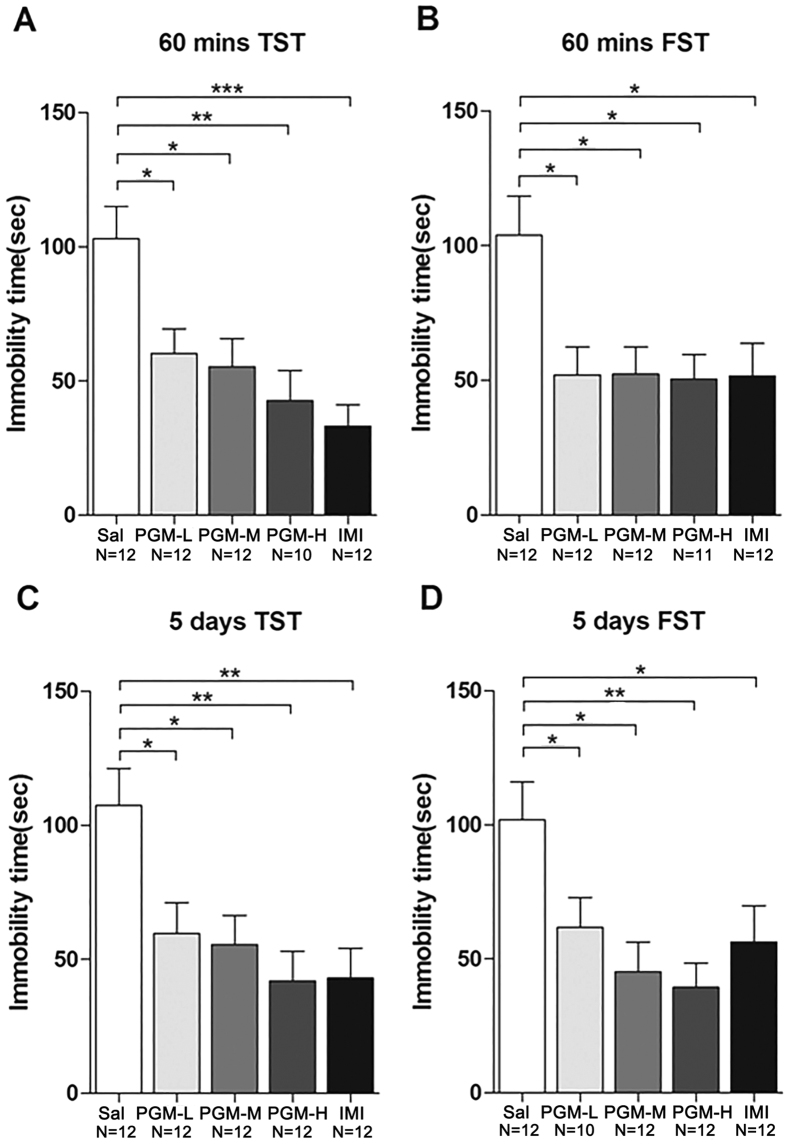Figure 2. Proteo-β-glucan from Maitake (PGM) demonstrated a significant antidepressant effects in the tail suspension test (TST) and forced swim test (FST).
CD-1 mice were i.p. injected with a low dose of PGM (5 mg/kg/day, PGM-L), a medium dose of PGM (8 mg/kg/day, PGM-M), a high dose of PGM (12.5 mg/kg/day, PGM-H), imipramine (15 mg/kg/day, IMI) or saline (Sal). After PGM treatment for sixty minutes (mins) or five days, mice were subjected to the TST or FST. The number (N) of mice per group is indicated in each individual graph. Any experimental data value greater than mean plus 2 × standard deviations (SDs) from a group was considered an outlier and was not considered in the analysis. Data were analysed by one-way ANOVA and presented as the mean ± SE (post hoc Tukey’s test, *p < 0.05, **p < 0.01, ***p < 0.001). (A,B) Sixty minutes after the injection, PGM significantly reduced the immobility time in the TST or FST. (C,D) After 5 consecutive days of injection, PGM significantly reduced the immobility time in the TST or FST.

